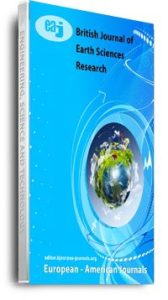Land cover maps provide best understanding of current landscape change over time. One can evaluate past land cover maps for several different years for management decisions as well as gain insight into the possible effects on decisions making. One of the key monitoring areas is how the environment keeps degrading resulting from increased anthropogenic activities such as the removal of the forest covers. This study monitors the pattern changes of the Geidam Yobe state Nigeria, using Landsat images of two different periods from Enhanced Thematic Mapper (ETM+) image of data of 1988 and 2018. The images were geometrically and atmospherically pre-processed then classified, using maximum likelihood (MLC) algorithm to produce land cover maps of the Geidam. The accuracy of the classification was assessed with confusion matrices giving results morethan the minimum 85% required. The results revealed that the built-up and tree area increase by (+30.97%), water body reduced by (-5.06%) and forest reduce by (-23.48%) within the study period. This shows a rapid decrease in the forest, which is partly attributed to deforestation activities and partly to climate change impact.
Citation: Alhaji, Mustapha Isa; Ayuba, Abubakar Fusami, and Danboyi, Joseph Amusu (2022) Depletion of Forested Area: Geidam Perspective, British Journal of Earth Sciences Research , Vol.10, No.4, pp.1-,6
Keywords: Change Detection, Classification, Landsat data, Remote Sensing

